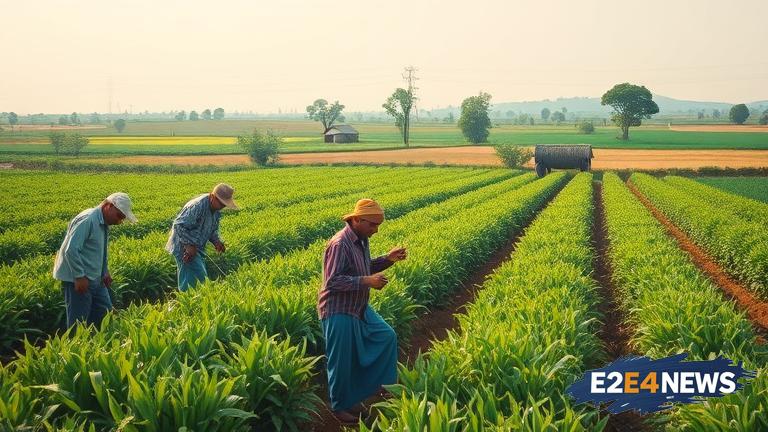Agriculture is the backbone of many economies, particularly in developing countries where it provides employment and income for a significant portion of the population. However, farmers in these countries often face numerous challenges, including limited access to credit, markets, and technology, which hinder their ability to produce and sell their products efficiently. Empowering farmers is essential to address these challenges and unlock sustainable agricultural growth. This can be achieved through various means, such as providing training and capacity-building programs, improving access to financial services, and promoting the use of technology and innovation in agriculture. Additionally, governments and development organizations can play a critical role in supporting farmers by implementing policies and programs that promote agricultural development and reduce poverty. For instance, initiatives that provide subsidies, tax breaks, and other forms of support can help farmers to increase their productivity and competitiveness. Moreover, empowering farmers can also contribute to food security and nutrition, as it enables them to produce a diverse range of crops and livestock, which can help to improve the health and well-being of local communities. Furthermore, sustainable agricultural practices can help to reduce the environmental impact of farming, which is critical for mitigating climate change and promoting sustainable development. In Lesotho, for example, the government has implemented various initiatives to support farmers, including the establishment of the Lesotho National Agricultural Development Strategy, which aims to promote agricultural growth and reduce poverty. The strategy focuses on improving the productivity and competitiveness of farmers, as well as promoting the use of technology and innovation in agriculture. Other countries in the region, such as South Africa and Mozambique, have also implemented similar initiatives to support farmers and promote agricultural development. However, despite these efforts, many challenges remain, and more needs to be done to empower farmers and unlock sustainable agricultural growth. This includes addressing the issue of limited access to credit and markets, as well as promoting the use of technology and innovation in agriculture. Moreover, there is a need to promote sustainable agricultural practices, which can help to reduce the environmental impact of farming and promote sustainable development. In conclusion, empowering farmers is critical for sustainable agricultural growth, food security, and poverty reduction in developing countries. It requires a comprehensive approach that addresses the various challenges faced by farmers, including limited access to credit, markets, and technology. By providing training and capacity-building programs, improving access to financial services, and promoting the use of technology and innovation in agriculture, governments and development organizations can play a critical role in supporting farmers and promoting agricultural development. Additionally, promoting sustainable agricultural practices can help to reduce the environmental impact of farming and promote sustainable development. The benefits of empowering farmers are numerous, and it is essential that more is done to support them and unlock sustainable agricultural growth. This can be achieved through a combination of policy and programmatic interventions, as well as through the promotion of sustainable agricultural practices. By working together, governments, development organizations, and the private sector can help to empower farmers and promote sustainable agricultural growth, which is critical for reducing poverty and promoting sustainable development. Empowering farmers is not only a moral imperative, but it is also a sound economic strategy, as it can help to promote economic growth, reduce poverty, and improve food security. Furthermore, it can also help to promote sustainable development, which is critical for mitigating climate change and promoting environmental sustainability. In the long run, empowering farmers can help to create a more equitable and sustainable food system, which is critical for promoting human well-being and reducing poverty. Therefore, it is essential that more is done to support farmers and promote sustainable agricultural growth, which can be achieved through a combination of policy and programmatic interventions, as well as through the promotion of sustainable agricultural practices.
